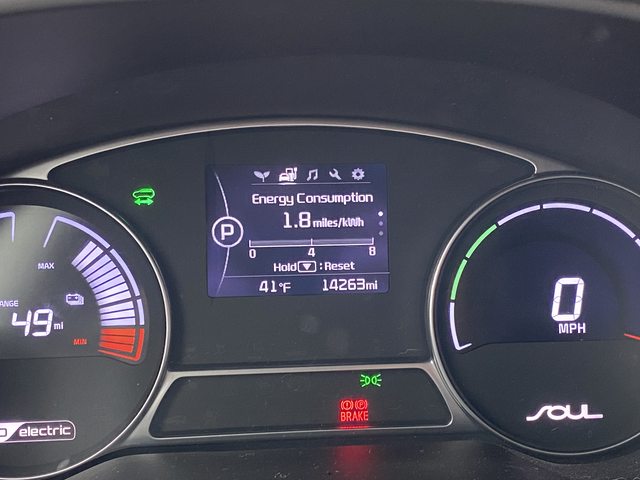I have a 2016 Kia Soul EV+. I like to reset the "energy consumption" computer daily on the instrument cluster. However, it seems like it is really inaccurate. I have it set to "manual reset".
As far as I know, the car has a 27kWh battery. Today, I started at 100%. I reset the energy consumption computer. I drove 92.69 miles, charging midway with an EVGo DC Fastcharging station for just 6.83kWh. I finished my drive at the end of the day with 17% remaining. By my calculations:
(100% - 17%) X 27kWh = 22.41kWh
22.41kWh + 6.83kWh (from EVGo) = 29.24 kWh consumed TOTAL
92.69 miles / 29.24kWh = 3.17 miles/kWh
For some reason my energy consumption computer reported 3.8 miles/kWh. Why is there such a discrepancy? Am I missing something?









































